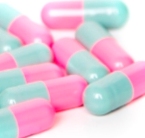Autism Linked to Mothers Taking Antidepressant Drugs
If you are a pregnant mother and you are taking antidepressants you might want to talk to your doctor. This is because antidepressants during pregnancy have now been linked to autism in the child.
In this article
Antidepressants and autism risk
Medical researchers at the Johns Hopkins University School of Public Health say the evidence is strong that a pregnant mother who takes certain types of antidepressant drugs will have a dramatically increased risk of her child having autism.
The research investigated not only the clinical research, but the mechanisms associated with taking selective serotonin reuptake inhibitors (SSRIs) during pregnancy.
Medical research has established that about a third of autistic children have increased levels of a neurotransmitter called serotonin in the blood stream. Other findings have determined that these higher serotonin levels are often caused by errors in the signalling process amongst brain and nerve cells – as the cells are not utilizing serotonin properly.
SSRIs produce the most risk
The hypothesis that is being proven out by the research is that when the mother takes SSRIs during or prior to pregnancy, the baby’s brain and nerve cells’ ability to utilize and process serotonin becomes diminished.
And because serotonin is intimately related to the brain’s ability to focus and concentrate thoughts – as well as experience empathy and other moods – dysfunctional serotonin metabolism can produce a myriad of mental and emotional issues.
While this research focused upon on prenatal SSRI exposure (from the mother during pregnancy) could this also mean a child’s serotonin metabolism might also be damaged should the mother or even father have taken SSRIs prior to conception of their baby?
The latter supposition certainly requires more study, but there is now clinical evidence showing a clear connection between autism and SSRI use by the mother.
Children and moms studied
A late 2011 study from Kaiser Permanente Hospitals in Northern California tested 298 autistic children along with 1,507 “control group” children randomly selected from the Kaiser Permanente Centers.
Of the autistic children, 20 of the 298 children were exposed during pregnancy to SSRI antidepressants via their mother, and 50 of the control group were exposed to SSRIs.
The research found that those mothers who had taken SSRIs within the past year were than twice as likely to have children with autism.
Furthermore, those mothers who took SSRIs during the first trimester were nearly four times more likely to have children with autism than mothers who did not take SSRIs.
This last piece of data indicates that it is not simply SSRI exposure: It is exposure during the earliest states of development – producing greater risk.
Furthermore, the link found in this research has laid out the mechanism for better understanding how other chemical exposures during pregnancy are also linked with autism. The mechanism link is provided from chemical-hormone disruption research.
Over the past decade, research has consistently linked the exposure to many of the chemicals present in our pesticides, herbicides, plastics, and other manufactured chemical products that become ingested into the body to hormone disruption – as we’ve reported on before in Realnatural News.
And hormone disruption has also been irreparably linked to serotonin dysfunction within the body. This effect of damage to brain and nerve cells through chemical toxins is called neurotoxicity.
For example increased prenatal phthalate polychlorinated biphenyl exposure has been linked with autism. These chemicals are endocrine disruptors and this endocrine disruption has been linked with increased risk of autism.
Multiple studies confirm the chemical link
A review of research by researchers at The Netherlands’ YU University analyzed 21 clinical studies, and found that exposure to these sorts of chemicals significantly increased the incidence of autism. The researchers’ stated of their research:
“Positive associations were found for autism spectrum disorders in relation to exposure to all chemicals investigated, which included hazardous air pollutants, pesticides and bisphenol A (BPA). Increased risks of ADHD or positive associations were found for exposure to polychlorinated biphenyls (PCBs), dialkyl phosphate (DAP) and chlorpyrifos. BPA, polybrominated diphenylethers (PBDEs) and low molecular weight (LMW) phthalates were positively associated with externalizing behaviour. Five of 17 studies did not find any association between exposure and ADHD.”
In other words, this research linking SSRIs and high circulating serotonin levels with austic children might be considered the canary in the coal mine. The one consistent parallel with the dramatic increase in autism over the past few decades has been the dramatically increased use of these chemical toxins amongst our foods, water, air and living spaces.
This is confirmed by umbilical cord blood research from the Environmental Working Group that found up to 232 different industrial chemical toxins within the umbilical cord blood from 10 randomly selected infants. Other research also finds autism linked to chemicals during pregnancy.
And the reason why it has been so difficult to make a connection between autism and any one cause is because hormone-disrupting chemicals are now ubiquitous in our society.
Today we are exposed to so many of these hormone disrupting chemicals through our water, our air, our food, our buildings and everything in between. Our increased exposure to these has reflected our increases in childhood autism.
Hatha yoga helps autism in kids. Cognitive Behavioral therapy works better than drugs for autism.
REFERENCES:
Harrington RA, Lee LC, Crum RM, Zimmerman AW, Hertz-Picciotto I. Serotonin Hypothesis of Autism: Implications for Selective Serotonin Reuptake Inhibitor Use during Pregnancy. Autism Res. 2013 Mar 14.
Croen LA, Grether JK, Yoshida CK, Odouli R, Hendrick V. Antidepressant use during pregnancy and childhood autism spectrum disorders. Arch Gen Psychiatry. 2011 Nov;68(11):1104-12.
de Cock M, Maas YG, van de Bor M. Does perinatal exposure to endocrine disruptors induce autism spectrum and attention deficit hyperactivity disorders? Acta Paediatr. 2012 Aug;101(8):811-8.
Winneke G. Developmental aspects of environmental neurotoxicology: lessons from lead and polychlorinated biphenyls. J Neurol Sci. 2011 Sep 15;308(1-2):9-15.
EWC. Pollution in Minority Newborns: BPA and other Cord Blood Pollutants. 2009. Nov 3. http://www.ewg.org/research/minority-cord-blood-report/bpa-and-other-cord-blood-pollutants















